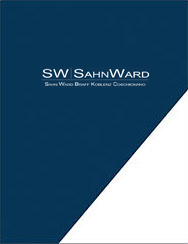|
On April 20, 2024, the 2024-2025 Fiscal Budget finally passed, including three new laws that New York State Employers need to be aware of. NYS Mandated Paid Nursing Breaks (Eff. 6/19/2024) While it seems like the New York State Labor Law was just amended to expand breastfeeding rights to nursing mothers, it has been amended again with the 2024-2025 Fiscal Budget and this change is a big one. Effective June 19, 2024, New York State employers must provide thirty (30) minute paid breaks for nursing mothers each time an employee has a need to express milk for up to three (3) years following childbirth. This new law also requires employers to permit employees to use their existing paid break and meal periods to express breast milk when breaks longer than thirty (30) minutes are needed. This new law applies to all New York State employers regardless of size. The language of this new law is devoid of any indication as to how often an employee may take a paid nursing break. The prior iteration of the nursing law that was signed in December 2022 allowed employees to take nursing breaks once every three (3) hours, with accommodations made for employees needing to nurse more. Thus, it is reasonable to conclude that this new paid nursing break law will be interpreted similarly, subject to further guidance by the New York State Department of Labor. NYS Mandated Paid Pre-Natal Leave (Eff. 1/1/2025) As part of the 2024-2025 Fiscal Budget, lawmakers amended New York Labor Law §196-B to mandate twenty (20) hours paid prenatal leave annually for pregnant employees. This paid leave is in addition to the forty (40) or fifty-six (56) hours paid leave that New York State employers must provide under the New York State Paid Sick Leave Law and the twelve (12) weeks job protected leave required by the New York State Paid Family Leave Law. The new Paid Pre-Natal Leave Law states that leave may be taken for “health care services received by an employee during their pregnancy or related to such pregnancy, including physical examinations, medical procedures, monitoring and testing, and discussions with a health care provider related to the pregnancy.” (Emphasis added) The law further provides that “[p]aid prenatal personal leave may be taken in hourly increments” and shall be paid at the greater of the employee’s regular rate of pay or the applicable minimum wage. The law further provides that nothing in the bill “shall be construed to require an employer to pay an employee for unused paid prenatal leave upon such employee’s termination, resignation, retirement or other separation from employment.” The new law as written does not provide a waiting period before an employee is entitled to take such leave and applies all New York State employers regardless of size. While New York is the first state to enact such legislation, the statute’s parameters have yet to be defined. Questions remain as to whether this law applies to just pregnant female employees or whether it also applies to an employee whose significant other is expecting. The way the law is written, it could be construed as only applying to pregnant female employees similar how the Pregnancy Discrimination Act has been interpreted. Taking this one step further, the law is silent as to whether it permits an employee expecting through surrogacy to use such paid leave to attend prenatal appointments of a surrogate. There are also questions that remain as to whether this new law would provide paid leave to an employee seeking confirmation of a suspected pregnancy. Finally, while it states that such leave can be taken in hourly increments, the new law does not state whether an employer may mandate minimum four (4) hour increments as is permitted by the New York State Paid Sick Leave Law. As to payment of accrued, but unused, paid prenatal leave upon termination, New York State employers should be mindful of the fact that, to be effective, the New York State Department of Labor requires a forfeiture policy to be in writing. Thus, all New York State employers should ensure that their employee handbooks include such a forfeiture policy regarding this and all other paid time off to avoid liability to departing employees. Paid COVID-19 Sick Leave (Repealed, eff. 7/31/2025) New York State Employers have eagerly awaited repeal of the COVID-19 Sick Leave Law requiring employers to provide paid COVID-19 Sick Leave to employees who were subject to a mandatory or precautionary order of quarantine or isolation. Now, with the new budget, there is an end in sight, albeit not until next year. Effective July 31, 2025, the COVID-19 Sick Leave Law will be repealed and employees exposed to COVID-19 will need to use regular sick leave should they require time off as a consequence.
Sahn Ward Braff Coschignano PLLC is committed to providing the highest quality legal representation, counsel and advice. The Firm is dedicated to applying its expertise to achieve its clients' goals. Its attorneys are well-respected and have broad experience from their legal backgrounds as well as from their dedication to community and civic service. Sahn Ward enjoys the highest professional reputation, serves its clients with respect and courtesy, and devotes every effort to each client on an individual and personal basis. The Firm has built and established its long-standing relationships with its clients on the principles of expertise, service, vision and respect. Sahn Ward looks forward to continuing to serve, advise and counsel all of its clients.
|





